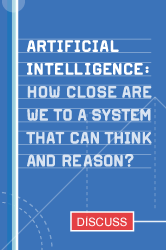The last time a president won with 60 percent of the vote, for instance, was when Lyndon Johnson trounced Barry Goldwater in 1964. Health-care reform passed the House with only 50.5 percent of the body voting for it. And the senators making up this morning's 60 votes actually represent closer to 65 percent of the population. Harry Reid has much to be proud of today.
Neuron Culture
David Dobbs on science, nature, and culture.
Search
Profile
 I write on science, medicine, nature, culture and other matters for the New York Times Magazine, The Atlantic, Slate, National Geographic, Scientific American Mind, and other publications. (Find clips here.)
I've also written three books, including Reef Madness: Charles Darwin, Alexander Agassiz, and the Meaning of Coral, which traces the strangest but most forgotten controversy in Darwin's career — an elemental dispute running some 75 years. Oliver Sacks found Reef Madness "brilliantly written, almost unbearably poignant." Check it out.
I write on science, medicine, nature, culture and other matters for the New York Times Magazine, The Atlantic, Slate, National Geographic, Scientific American Mind, and other publications. (Find clips here.)
I've also written three books, including Reef Madness: Charles Darwin, Alexander Agassiz, and the Meaning of Coral, which traces the strangest but most forgotten controversy in Darwin's career — an elemental dispute running some 75 years. Oliver Sacks found Reef Madness "brilliantly written, almost unbearably poignant." Check it out.
If you'd like, you can subscribe to Neuron Culture by email. You might also want to see more of my work at my main website or check out my Tumblr log.
My Google Shared links
Recent Posts
- Ezra Klein - America spends way, way, way more on health care
- NEJM study finds post-event morphine cuts combat PTSD rates in half
- Rebooting science journalism -mixed-metaphor notes on the upcoming yakfest
- Danny Carlat on the big new antidepressants-don't-work study
- Neuron Culture's top five from December
- Avatar smackdown!
- Winning ugly, but winning
- Is this where Gladwell wanders astray?
- Sell the drugs, they pay you. Criticize the drugs, they sue you.
- Rebooting science journalism, redux
Recent Comments
- Katharine on NEJM study finds post-event morphine cuts combat PTSD rates in half
- Matt on The Weird History of Vaccine Adjuvants
- Aaron Huertas on Rebooting science journalism -mixed-metaphor notes on the upcoming yakfest
- P. Jennings on Rebooting science journalism -mixed-metaphor notes on the upcoming yakfest
- John Timmer on Rebooting science journalism -mixed-metaphor notes on the upcoming yakfest
- Karl on Avatar smackdown!
- Malayna Dawn on Does the "orchid-dandelion" metaphor work for you? My duel with David Shenk
- David Dobbs on Rebooting (and Funding) Science Journalism
- Christopher Mims on Rebooting (and Funding) Science Journalism
- r4 on Vaughan Bell on kicking the addiction habit. Get your fix!
Categories
- Art
- Books
- Brains and minds
- Culture of science
- Digital culture
- Economics
- Education
- Environment/nature
- Evolution
- Food and Drink
- Healthcare policy
- History/philosophy of science
- Interesting if true...
- Journalism
- Matters military
- Media
- Medicine
- Music
- Neuroethics
- Nota Bene
- Orchids & Dandelions (behav genetics)
- PTSD
- Pharma
- Politics
- Psychiatry
- Reading
- Science
- Science policy
- Sports
- Swine flu
- Writing
« Is this where Gladwell wanders astray? | Main | Avatar smackdown! »
Winning ugly, but winning
Posted on: December 24, 2009 10:19 AM, by David Dobbs
Share this: Facebook Twitter Stumbleupon Reddit Email + More
TrackBacks
TrackBack URL for this entry: http://scienceblogs.com/mt/pings/127845




Comments
It's a win for the insurance companies, that's for sure. For the people who could be forced to be insurance with no limits placed on the insurance companies....not so much. Hopefully the house will keep their spines (the ones the democratic senators gave away) and fight for something that will actually help people.
Posted by: Badger3k | December 24, 2009 12:40 PM
If this were the final work product dealing with healthcare I would be sorely disappointing. But this is just the first salvo in what is going to be a very, very, long march toward a fairer, more equitable and more efficient system.
This includes provisions like actually placing some controls on insurance companies and getting people covered. Sure, most of the demands placed on insurance companies are either things they wanted or have no great problems with. But that isn't the point. These minor things establish a precedent of congress reaching down into them and making rules. It is also a tacit rejection of the mythology about free markets leading to better things for all. It is an acceptance that the insurance companies have been allowed to make their own rules and run things without strong oversight for too long. That much of the excessive cost, inequality and sloppiness is a result of allowing them to run things unsupervised.
It doesn't correct much in and of itself. But it sinks the idea that the insurance companies are the experts and should be allowed to run things without oversight. As such it is a valuable first step in what is going to take a decade to straighten out.
Winston Churchill was said to have said something along the lines of Americans always do the right thing ... after we try everything else. This bill is the first step toward doing the right thing. It is an admission that 'everything else' has failed to work and it starts the discussion of what the right thing might be. It doesn't do the right thing. But it opens the door to doing it.
Merry Christmas.
Posted by: Art | December 24, 2009 4:43 PM